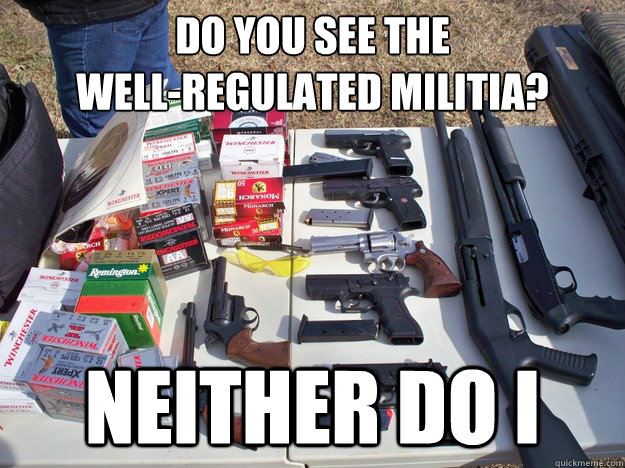Pedro de San Patricio
Gold Member
I've been trying to figure this out for months now. Does the "well regulated" specification refer to having military supplies, an organized chain of command with government control, or something else? Does the militia just refer to the old colonial militia system, their state defense force successors, all of the inactive components of the armed forces together, the unorganized militia the Selective Service draws from, or another group or combination of groups?


